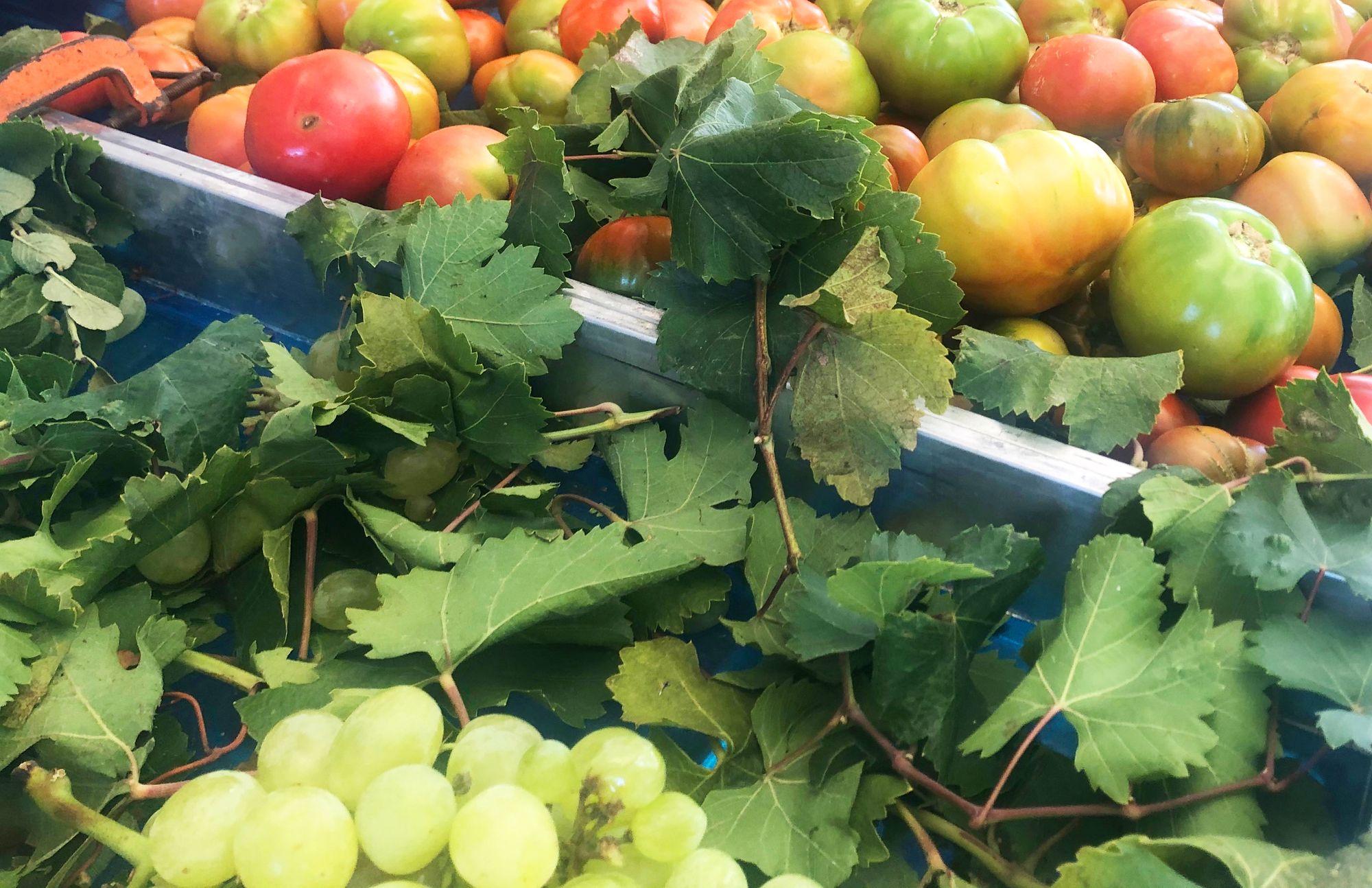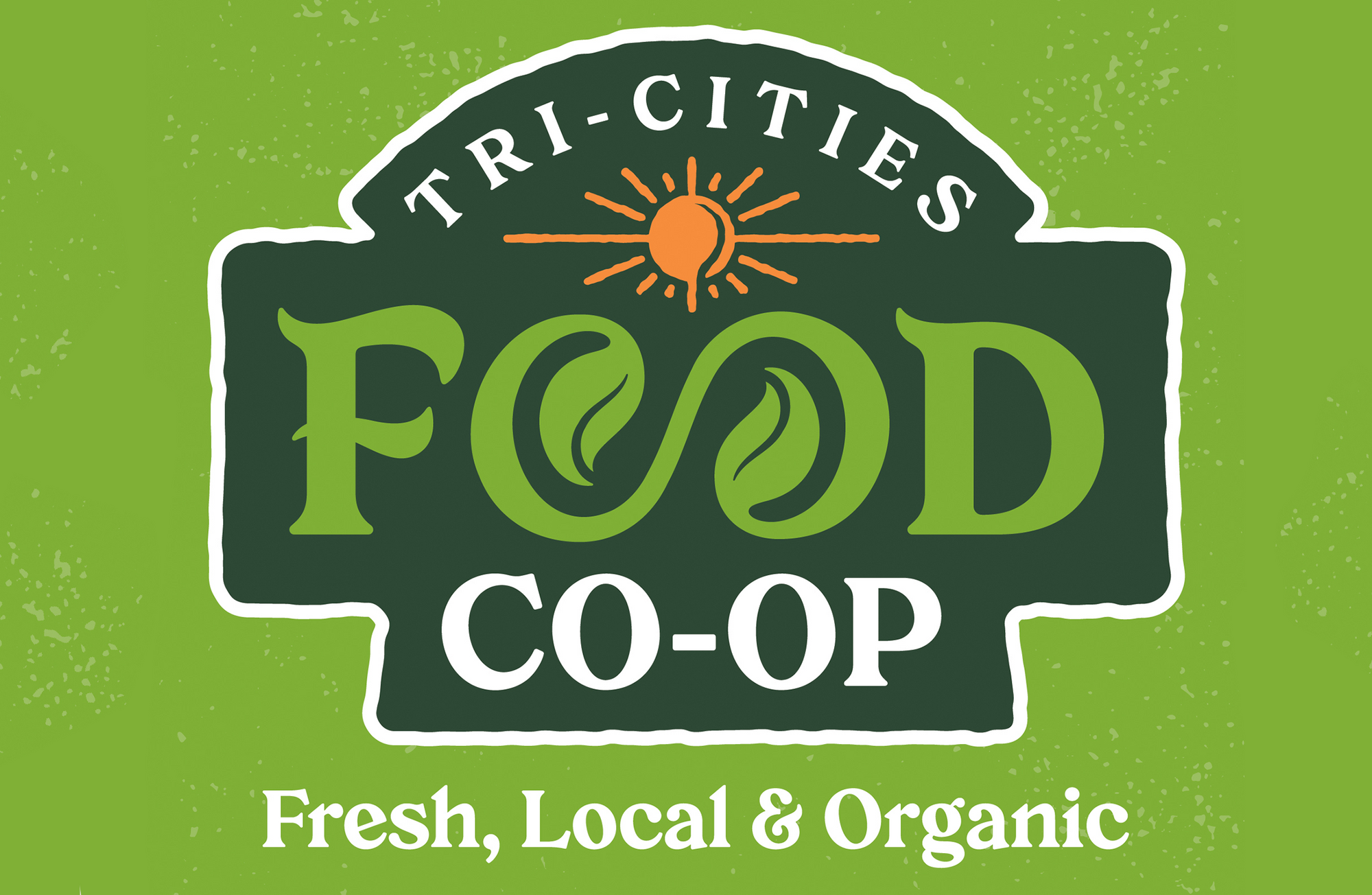It all started at the end of last summer when Damien Davis found himself having a conversation with Alan Schreiber, a local farmer, over a beer. “Alan said people couldn't find any of his products here locally,” says Davis. “You couldn't go to a store and buy one of his melons; you could only buy it from his farm.” So that kickstarted the conversation about opening a local co-op.
Thus was born Tri-Cities Food Co-Op. Their goal is to open a grocery style food Co-op here in Richland, Washington. And it will have more than produce; the board plans on having everything a grocery store would have — paper products, health and beauty items, and more.
What is a co-op, and how does it work?
There are a few different kinds of co-ops. “Our version is a community owned grocery store where people sign up and become members,” Davis explains. “It’s $100 for a family, and it's a lifetime membership as long as you spend at least $1 every year.” But Tri-Cities Food Co-Op is very invested in accessibility. They want to be able to offer memberships to everyone in the community — veterans, seniors, low-income people — regardless of their financial status.
“If, for some people, the $100 is a little too expensive, or if maybe they’re food insecure, they don't have access, or maybe they're on SNAP, but they don't get quite enough, there will be options for people to work to also be able to gain more buying power at the store. So our goal is to be accessible — readily available to lots of people, and across different demographics. We really, really, really want to be the community market.”
Tri-Cities Food Co-Op was originally planned to be an LLC, but they have shifted to nonprofit status as a 501(c)(6) organization. They have intentionally chosen to locate the store in a neighborhood rated by the U.S. Census as a low-income area, with low access to food. “This is a food desert, believe it or not,” says Davis. “We grow so much here. But if you don't attend farmers markets, it's almost impossible to get local produce.” One of their goals is to change the area’s designation.
Davis says the co-op will operate from both ‘ends’. “What that means is that we're a co-op on the front side; people can become members — and shopping there as a member, you do get special perks — but you do not have to be a member to shop there,” he says.
But the co-op is also working on the back ‘end’ — the supply side. “One of the things that's really hard for growers that not a lot of people realize is how much grocery stores beat them up,” Davis explains. “They're pretty aggressive on their pricing, what they are willing to pay for the product; and when it comes to the deliverables, they want only perfect products. So what ends up happening is there's a lot of really good, perfectly fine, perfectly edible food that goes to waste.”
To combat this food waste, Tri-Cities Food Co-Op is going to offer ‘ugly food’ to shoppers at a reduced price. ‘Ugly food’ could be two carrots that have grown together, or a gourd in an unusual shape. Growers will also be able to sell their ‘seconds’ — second harvests of produce that is of a slightly lower grade — at a discounted price. Seconds are great for canning or making jams and jellies, and the co-op will offer that produce in bulk. “We want to be really fair pricing-wise, and the vendors don't necessarily have to have ownership stakes,” says Davis.
“One of the original plans was to go fully organic, but we quickly realized that we would be excluding a lot of amazing local growers by doing that,” Davis explains. After reaching out to farmers, they found that going organic was cost prohibitive for some people. Now, one of the co-op’s missions is to help make it easier for those farmers who want to transition to organic. “That means we'll be paying a premium for their product,” Davis says. “They'll be able to get organic pricing before their products become fully organic, because we want to continue to see people grow, and we want the small agriculture in our area to really thrive.”

Full-circle co-op
Tri-Cities Food Co-Op has a lot of wonderful things planned. In the initial launch, the co-op will have a café inside with sustainably-sourced coffee. They will also be offering food that people can pick up easily, or eat on their lunch break. “We want to be able to get the products going full circle. So you know, as things are on the shelf and maybe they're not selling, we can basically buy that surplus from our own company store and process it into ready-to-eat meals. That way, we can keep prices affordable.”
They also plan to have a full deli case. “Eventually, we will have a full-blown, full-service cafe, including a meat, cheese, and seafood case,” Davis says. “We're talking right now with this gentleman from the Yakama tribe, who has tribal fishing rights, who's going to be able to supply us with some seafood during the runs.”
To complete the loop, Tri-Cities Food Co-Op will also give people an opportunity to learn how to cook, as well as learn how to maintain a healthy diet using the food that is available. As the co-op continues to grow, they will provide a kitchen classroom that people can book out, and where they can host classes. “We're going to offer demos and education to our members,” says Davis. And since accessibility is so important to the co-op, they will have Spanish and Russian translations available, also.
The co-op community
Davis says that the co-op community has been very welcoming. “You know, there are people who've been doing this for a very long time, and are doing very, very well,” Davis says. “We're not reinventing any wheels; we're just trying to bring this opportunity to our area.”
Tri-Cities Food Co-Op may not be reinventing the wheel, but they are creating a hub for a great many vendors, educators, and community members that will greatly increase the Tri-Cities’ accessibility to local food.
“We already have over 300 vendors that want to apply — we’re talking everything from farmers to cheesemongers to mushroom growers,” says Davis. He adds that since the growing season is only so long, and most vendors will only have harvests during certain parts of the season, they will have to supplement the store with other foods throughout the year. “But our goal is to be as local as possible, and as organic as possible,” he says.
Tri-Cities Food Co-Op will be partnering with several different organizations. “We're talking right now with the Richland School District about helping to get some products into the local schools. Right now, that process is just overly cumbersome, so we might be able to streamline it,” says Davis. “We are also looking to build relationships with the Cancer Society. They’re doing awesome ‘Crushing Cancer’ cooking classes.”
They are talking to the folks at B5, a refugee center in Kennewick, as well. “Is everything going to be 100% accessible all the time? Of course not. But our goal is to offer a diversity of options,” says Davis. He explains that culinary diversity is important, too, and hopes that they will be able to offer cooking classes for many types of cuisines.
The co-op has some fun events planned for the near future, including a farm party with bluegrass and barbecue.
Make your voice heard!
“If there's a vendor, or a product you would love to see, come to our website and let us know!” says Davis. “We're very receptive. And the cool part is that if you're a member, you have voting rights, so you can bend this place to fit exactly what it is you're looking for!”
Visit Tri-Cities Food Co-Op at https://tcfcoop.org


